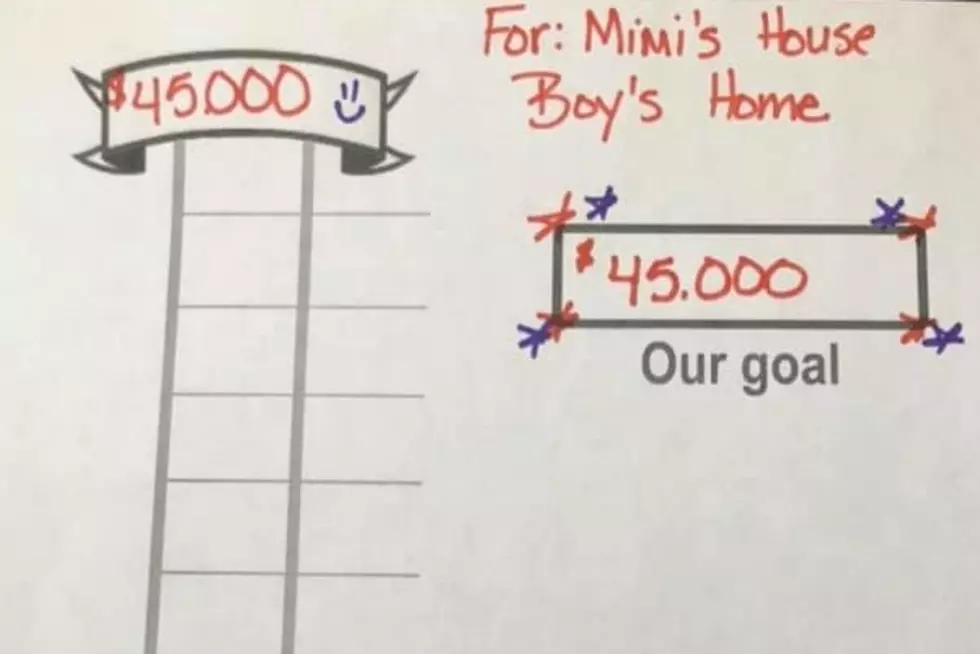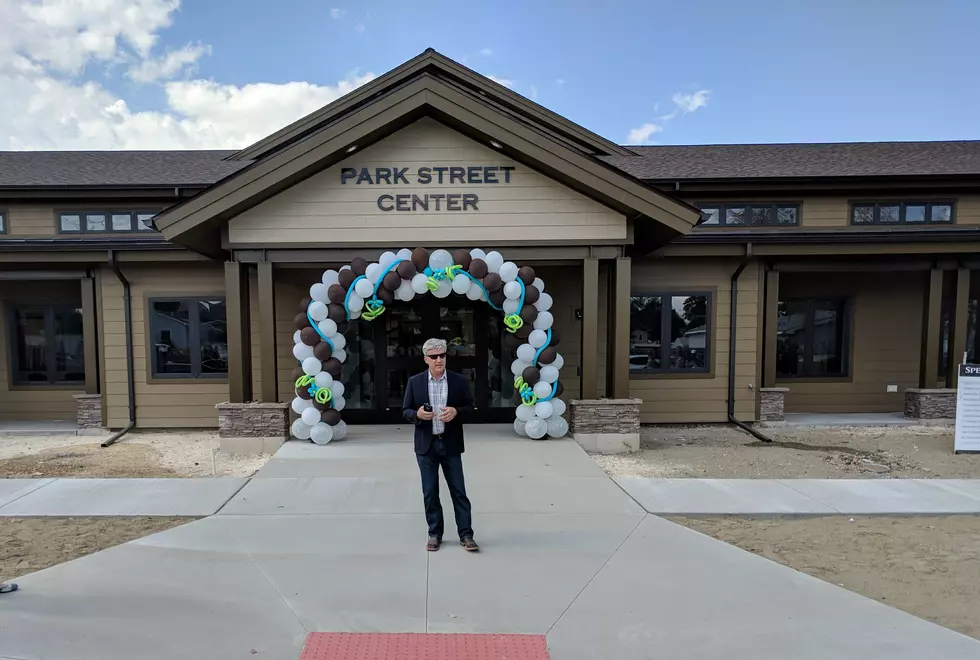
Wyoming Rescue Mission Breaks Ground For New Shelter
Manipulating the levers in the Caterpillar backhoe, Gov. Matt Mead angled the bucket, raised it, and dropped it teeth-first three times into the dirt in the vacant lot at North Park and East A streets on Tuesday.
Fingering a few more levers, Mead forced the bucket into the soil, curled it back, and dug out the first pile of earth to mark the next phase of the Wyoming Rescue Mission's project for a new homeless shelter.
Rescue Mission Director Brad Hopkins wanted to use earth movers to highlight the significance of the groundbreaking of the 20,000-square-foot Park Street Center just south of the current shelter. "We're not doing wimpy gold shovels."
Hopkins called it historic for the ministry and for people for generations. "We're breaking ground for a facility that's going to double our capacity to restore lives that are struggling with homelessness."
The mission has been working on the project for about four years, and the fundraising for the project began earlier this year, he said.
Most of the $8 million has been raised, with the help of a 0 percent bridge loan, for the $6 million center and related projects, Hopkins said. "For us to be at this point with just the challenges just speaks to the good will and the generosity of the community."
The Park Street Center will double the rescue mission's capacity to shelter and help transition homeless women and single-mom families into housing. Likewise, it will shelter single men and single-dad families, he said.
The existing shelter has 54 beds, but some residents recently have had to sleep on mats.
The new Park Street Center, with its wing for women, will be able to house 160 people overnight, Hopkins said.
The center also will quadruple the space for the life skills area for training and education, and will house a 100-seat dining hall, Hopkins said.
The current building at 230 N. Park St. -- former hotel and brothel -- is at the end of its years, and will be razed after the center is complete. That area will be used for parking and green space, he said.
Besides the new center, the mission will spend $1 million to renovate the maxed-out discipleship recovery space with 16 beds for the men, he said. It will build another 16-bed recover center for the women at the mission. The discipleship recovery program helps people control the choices, such as substance abuse, that contribute to their homelessness.
Before Mead got into the backhoe, he recounted growing up on a ranch in Teton County and his grandfather occasionally would take him to a homeless shelter in Jackson. His grandfather told him his great-grandfather once was down on his luck in Idaho and a Native American family took him in for winter work, Mead said.
That assistance a long time ago helped him and subsequent generations of his family succeed.
"Any one of us can fall on hard times," Mead said. "Any one of us can't say what the next generation going to happen to our kids, our grandkids."
More From My Country 95.5









